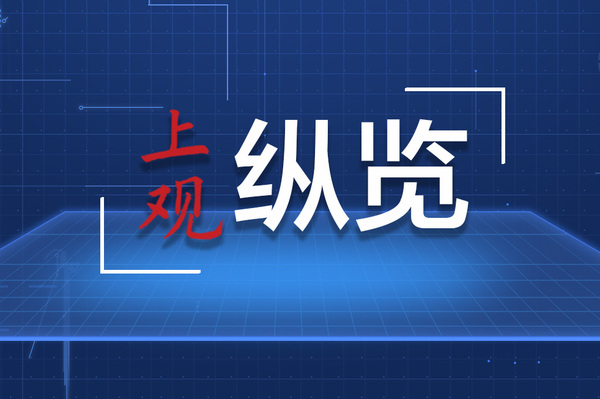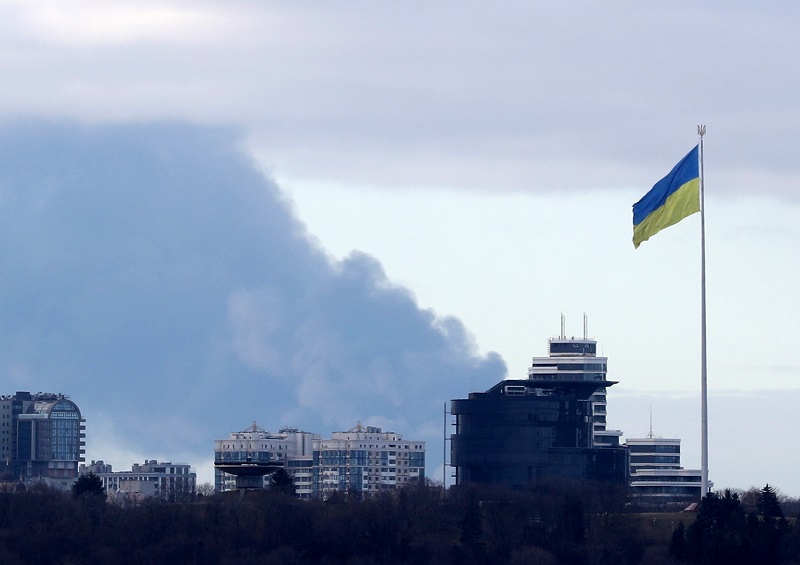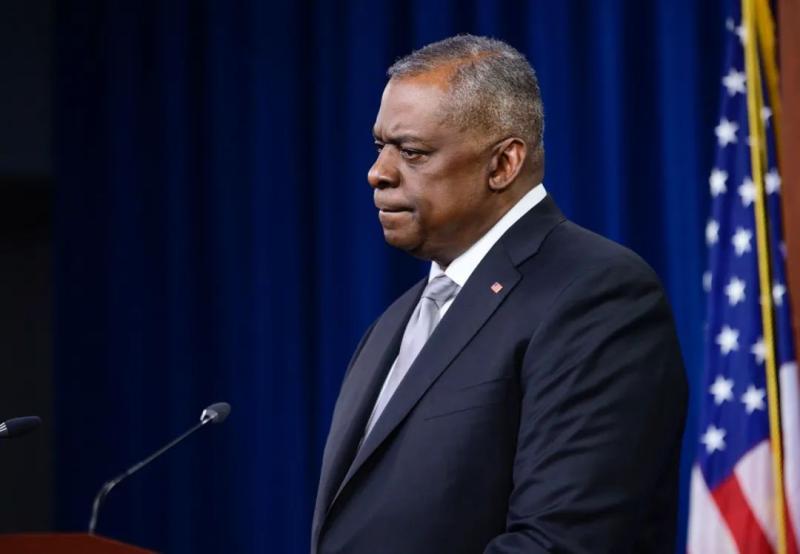A fundamental change is taking place, the situation
The recent global conferences are worth mentioning.
One is the G20 summit. Originally, among G20 members, the G7 had a particularly loud voice, but in this year's declaration, not only did the US and the West not mention any topics they wanted to hype up, but many rules that the US needed to comply with were also included. Even the US media exclaimed that Biden had failed.
After the G20 summit, the rise and fall of power became more apparent at the G77 and China summit.
At the summit, the Havana Declaration jointly issued by 134 developing countries pointed out the enormous challenges that the current unfair international economic order poses to developing countries. The leader of the rotating presidency of Cuba also said that "southern countries" demand an end to this "plundered international order.".
Opposing injustice and irrationality has always been raised by developing countries, but now, this call has become particularly confident.
Whether it's the Middle East and the resolution of the tide, the expansion of the BRICS cooperation mechanism, or the unprecedented solidarity among developing countries in recent multilateral conferences, all give people a genuine feeling that the world is really different.
This is the fundamental change that has occurred in the current international situation.
This rise is first reflected in the further growth of international organizations where developing countries are located, and the voice and representation of developing countries have been unprecedentedly enhanced.
The BRICS cooperation mechanism has increased from 5 countries to 11 countries. Before the expansion, the BRICS member countries covered Asia, Europe, Africa, and South America. After the expansion, they added members from regions such as the Middle East and North Africa, and more widely covered areas where developing countries gather. And the BRICS countries in the G20 have also become seven.
Not long ago, with China's leading support, the African Union successfully joined the G20.
The G20 is currently one of the most important multilateral mechanisms in the world besides the United Nations, but the African countries included in this mechanism were previously only South Africa.
Africa is the continent with the largest number of developing countries in the world, with over 50. With the goal of enhancing the voice of developing countries, China was the first to publicly express its support for the accession of the African Union at the G20 Bali Summit last year.
| | G20 Bali Summit
According to Tan Zhu's understanding, at this year's G20 Foreign Ministers' Meeting, only three member countries supported the accession of the African Union. With China's efforts, it ultimately led to the first expansion of the G20 since its establishment.
This trend can also be felt by Western countries in the United States. However, what they are doing is the opposite of unity.
Before attending the G20 summit, Biden released a message stating that for countries around the world, joining a global alliance led by the United States is safer than deepening relations with China, and it separates the largest developing country from other countries.
At the same time, the United States has also been unusually enthusiastic towards developing countries, and the G7 has invited six leaders from developing countries to attend.
The lack of composure in the United States and the West is ultimately due to the increasing pain caused by the trade-off.
This kind of pain corresponds to the second manifestation of the collective rise of developing countries, where regional countries are becoming increasingly united and centripetal forces are becoming stronger, and the feeling of fires in the United States and the West is becoming more prominent.
At the G20 summit, Saudi Arabia and other countries argued with the United States and the West on unreasonable carbon reduction requirements to defend the development rights of developing countries, focusing on addressing climate change and other issues. Behind confidence lies the support of the BRICS countries and a fundamental change in the regional situation.
This year, Saudi Arabia and Iran achieved a historic reconciliation through China's mediation, followed by a wave of reconciliation spreading to more countries in the Middle East. By May, the League of Arab States, no longer afraid of pressure from the United States, resumed Syria's membership.

On May 7th, the Arab League held a special meeting at the level of foreign ministers
The United States, which once threatened to turn Saudi Arabia into an "international outcast", has disappeared. In order to regain its so-called "influence", it has also followed suit and brought back the Middle East with a "Saudi Israeli reconciliation" plan.
Amidst the frustration of losing the Middle East in Washington, Middle Eastern countries are beginning to attempt to establish a truly secure and stable environment on their own in this region. Not long ago, Iran proposed that in order to ensure regional security, it plans to form a naval alliance with countries in Saudi Arabia, the United Arab Emirates, Qatar, Bahrain, Iraq and other regions, which will also include India and Pakistan.
Regardless of whether this alliance will be realized or not, this proposal itself indicates that the problems of developing countries can be solved by developing countries.
Behind the increasing number of independent choices is a renewed understanding of their own power by developing countries, which has also brought about a third manifestation of collective rise and a tangible impact on the international order.
| | G20 New Delhi Summit
In the joint declaration of this year's G20 summit, Tan Zhu discovered the following sentence:
"Reiterating that the G20 is the main forum for international economic cooperation, operating in a spirit of multilateralism and based on consensus, with all members participating equally in all activities, including the summit."
This sentence conveys the victory of developing countries.
"Reiterating" is a correction for the United States' attempt to use the "small circle" issue to kidnap the conference.
As soon as the joint declaration was issued, some people within the United States were immediately disappointed, not only bluntly accusing Biden of his failure, but also being sarcastic about India, the rotating chairman of this G20 summit.
Why are developing countries becoming more and more determined to stand together in the face of obstruction from the United States and the West? India and other developing countries that are also allies of the United States are one of the observation windows.
India is the rotating chair of the G20 this year and an ally of the United States. The United States has always hoped to use India as a wedge to penetrate developing countries and create a so-called "China India leadership dispute".
So, before this G20 summit, the United States deliberately elevated India's leadership position in the "global south", hoping to win its support through praise.
Nevertheless, India's final attitude at this year's G20 summit is worth pondering.
| | G20 New Delhi Summit, US President Biden and Indian Prime Minister Modi
According to the G20 mechanism, the summit does not have a voting session, and the achievement of the declaration relies on consensus among member countries.
In the joint declaration, it was directly stated that India, as the rotating chair of the G20, has played a certain role in coordinating the consensus of all member countries on "opposing protectionism" and "sustainable semiconductor supply chains" aimed at the United States.
In fact, let's take a look back at the reports that the United States and the West have praised the success of the New Delhi summit. The overall tone is that the G20 summit has a great momentum, but it implies that it was Biden's announcement of attendance that gave India the opportunity to shine.
Suddenly, the efforts to make India the rotating chair of the G20 were completely subservient. This narrative implies the deep-seated contempt of the American Western bloc towards India, even if it is an ally of the United States.
This year, the United States had promised India to hold an Indo Pacific summit, but it fell through. Biden's visit to Asia this time promised to arrange a state visit to India during the G20 summit, and to arrange a four country meeting with the United States, Japan, India, and Australia after the end. However, not only were they all cancelled, but Biden also went to Vietnam. This obvious "favoritism" has left India in the cold.
India's dissatisfaction is obviously not just about noisy emotions, but also about the complete contempt of the United States and Western countries, which is not just limited to language.

Against the backdrop of India's upcoming general election, Human Rights Watch in the United States claims that "under the leadership of the Modi government, civil and political rights in India have sharply deteriorated." Biden himself does not forget to point fingers at India's human rights issues.
| | Biden once discussed human rights issues with Indian Prime Minister Modi at the G20 summit
What exactly does the United States consider as an ally? India knows its own situation.
Perhaps some people think that compared to the G7, India is not yet considered the "core circle of friends" of the United States, but is the "core circle of friends" much better?
Even with its European allies, the United States remains steadfast. Tan learned that after the European debt crisis, in 2011, when the then US President attended the G20 summit that year, he decisively refused to provide assistance to Italy and intended to interfere with Italy's economic sovereignty.
The United States has exhausted its allies to the point of leaving no bones.
Such blatant hegemony deeply shocked the countries present at the time, and developing countries detest it even more. Of course, for a period of time, the United States has also wanted to improve its image and create its own efforts to assist developing countries in construction and development.
After the G20 summit, American media began to hype up the so-called "achievements" brought together by countries such as India, Saudi Arabia, and the United Arab Emirates, known as the "India Middle East Europe Economic Corridor". According to the plan, this corridor will connect Europe, the Middle East, and India by railway and sea.
| | Prediction of the route plan for the "India Middle East Europe Economic Corridor" by overseas media
The specific details for the construction of this corridor will take another two months. Essentially, it's still about drawing big cakes.
According to the US plan, a railway will be built across the entire Arabian Peninsula - in the desert.
Not to mention the frequent derailment of trains in the United States, does it really have the ability to build railways in the desert. Even so, the election cycle in the United States determines that they are almost insulated from long-term development plans.
| | Train derailment incident in Ohio, USA
Mr. Tan also understands that the European and American business communities have already formed a consensus and firmly refuse to pay for the infrastructure plans of the United States. Two years ago, the trillion dollar global infrastructure construction plan proposed by the United States at the G7 conference has so far received very little funding.
The fundamental reason is that the United States has neither China's infrastructure capacity nor China's investment logic. China's investment under the "the Belt and Road" initiative adopts the way of "financial capital+industrial investment", in other words, "building roads while building factories", which means simultaneously introducing industrial funds while investing in transportation infrastructure. In this way, the economic driving effect of infrastructure can be efficiently utilized.
Behind this is a long-term thinking that truly considers regional development, rather than a short-sighted approach that treats investment as a means of control.
The United States is putting the cart before the horse, and can only become a copycat.
As the voices of developing countries become louder and the logic of the United States and the West controlling the world becomes clearer, a change will naturally occur:
The world will no longer develop according to a certain pattern, and there will be more and more new development models that the United States and the West cannot control.
China has come to this day, relying on the development model of the United States and the West clearly cannot be derived. The United States does not think about why others are different, but instead reflexively suppresses sanctions, technology blockades, and applies extreme pressure.
The United States treats China in this way, and it also treats most countries exploring their own paths in this way.
| | The United States imposes sanctions on Venezuela's National Oil Company

Venezuela, which the President has just visited in China, has been constantly ravaged by the United States. Due to unwillingness to adopt the US development model, Venezuela has faced severe sanctions from the US. A total of 93 accounts of Venezuela's state-owned institutions and enterprises have been frozen, and $22 billion in assets have been frozen by international financial institutions.
This difficult situation actually reflects the common dilemma that many resource-based countries face when exploring the path of independent development - despite possessing huge amounts of energy, they are excessively controlled by the United States and the West.
More and more countries like this are choosing to compete for the dominant position in development and take their own path.
Not long ago, Mubadala Investment Company, a major sovereign wealth fund in the Middle East, officially opened its Beijing office. According to data, Middle Eastern sovereign wealth funds represented by the Abu Dhabi Investment Authority and the Kuwait Government Investment Authority have become the top ten circulating shareholders of over 40 Chinese A-share listed companies.
The interaction between developing countries is not only about encrypted cooperation, but also seeking a spiritual resonance - to establish independent, autonomous, and dignified countries.
Since the beginning of this year, Tan Zhu has noticed a detail that five presidents have visited a city in China, Shenzhen. Why Shenzhen?
Everyone may say that this is the forefront of openness and the highland of innovation. We can also find a lot of data to confirm this conclusion, such as the PCT international patent in Shenzhen, which has been ranked first in China for nearly 20 consecutive years.
But what Tan Zhu wants to say more is that Chinese cities represented by Shenzhen have broken a Western imagination about development models:
Developing countries are not limited to the downstream of the industrial chain, nor is it synonymous with "backwardness".
Venezuelan President Maduro Visits Shenzhen
In fact, as early as 2016, at the first G20 summit held in China, developing countries had already surpassed the imagination of the West.
At that meeting, the G20 Digital Economy Development and Cooperation Initiative was adopted, which was the world's first digital economy policy document jointly signed by leaders of multiple countries.
Tan Zhu learned that both the initiative proposed by China and the level of digital economy in Hangzhou surprised the developed countries attending the meeting.
Rather than being surprised by China's digital economy, it is more accurate to say that a new development model has surpassed their imagination and cognition.
In fact, even the African countries constructed by the West as the most backward are breaking many people's inherent perceptions in exploring new developments in their own development paths.
Last June, the President of Kenya published an article clearly stating that the G7 should learn from Africa's experience in dealing with multiple crises.
The African Union has far stronger action than the United States and the West in addressing climate change issues. Even during the pandemic, it coordinated with governments of various countries to allocate $3 billion in funds to address climate change, in order to avoid potential losses at a higher cost.
There has never been a universally applicable development path. If everything is unified, the development of things and the progress of the world will also stop.
The vast majority of countries in the world still need to prioritize development.
How to develop in the most beneficial way for their own country, and they have the most say on their own. This world does not require the authority and mythology of patterns, what is needed is the beauty of each and the myriad of phenomena.
If the United States and the West are truly powerful in their hearts, they should broaden their horizons and allow developing countries to boldly seek their own direction. If we cannot accept any other path, it may only indicate that the West itself is weak.




